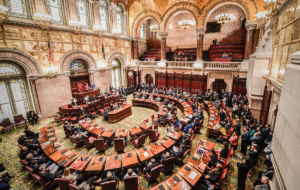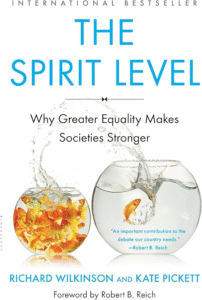The Spirit Level: A Radical Call for Equality

Richard Wilkinson and Kate Pickett’s seminal work, The Spirit Level: Why More Equal Societies Almost Always Do Better, presents a compelling and meticulously researched argument that income inequality is not merely a moral failing, but a deeply corrosive force that undermines the well-being of entire societies. Far from being an inevitable byproduct of economic growth, the authors demonstrate with extensive data that greater disparities between rich and poor lead to a host of societal ills, impacting not just the disadvantaged, but everyone, across the social spectrum. The Spirit Level serves as a powerful indictment of neoliberal policies and a radical call for a more egalitarian future, grounded in robust empirical evidence.
The Core Thesis: Inequality’s Detrimental Impact
The core thesis of The Spirit Level is elegantly simple yet profoundly impactful: among affluent nations, it is not the overall wealth of a country that determines its citizens’ health and social outcomes, but rather the level of income equality. Through a striking array of scatter graphs comparing data from 23 rich countries and 50 US states, Wilkinson and Pickett demonstrate powerful correlations between income inequality and a wide range of problems. These include, but are not limited to, higher rates of mental illness, drug abuse, obesity, violence, imprisonment, teenage pregnancies, and lower levels of trust, social mobility, and child well-being. The visual evidence is undeniable, showing that societies with wider income gaps consistently perform worse on these indicators.
Understanding the Mechanisms: The Role of Psychosocial Stress
What sets The Spirit Level apart is its exploration of the underlying mechanisms through which inequality exerts its detrimental effects. The authors posit that the primary driver is psychosocial stress stemming from status anxiety. In more unequal societies, social hierarchies become more pronounced, and the constant pressure of social comparison intensifies. This heightened awareness of one’s place in the pecking order leads to chronic stress, feelings of inferiority, and a breakdown of social cohesion and trust. It is this pervasive stress, rather than simply material deprivation, that manifests in a multitude of physical and mental health problems, and contributes to dysfunctional social behaviors across the population. The book skillfully navigates away from the common misconception that inequality only harms the poor, showing how even the affluent suffer from the societal consequences of a less trusting, more violent, and less healthy environment.
Political Implications and Solutions
The Spirit Level is not just an academic exercise; it is a profound political statement. It challenges the long-held belief, particularly prevalent in certain economic ideologies, that inequality is a necessary spur for innovation and economic growth. Instead, Wilkinson and Pickett contend that inequality acts as a brake on progress, eroding the social fabric and fostering conditions that hinder human flourishing. The implications are far-reaching: if inequality is the root cause of so many contemporary problems, then policies aimed at reducing it become the most effective means of improving societal well-being.
While The Spirit Level meticulously presents the problem, it also implicitly and explicitly points towards solutions. The fundamental message is that moving towards greater equality is not about charity or redistribution solely for the sake of the poor, but about creating better societies for everyone. This entails policies that address income disparities, strengthen social safety nets, promote fair wages, enhance opportunities for all, and foster a sense of collective well-being over individualistic competition. The authors suggest that embracing a more collaborative and less consumerist society is key to shifting the balance away from the negative consequences of inequality.
In conclusion, The Spirit Level by Richard Wilkinson and Kate Pickett is a landmark work that transformed the discourse on social inequality. Its rigorous empirical analysis and compelling arguments have provided an indispensable framework for understanding the profound societal costs of large income disparities. By demonstrating that inequality harms us all, the book issues a powerful challenge to conventional wisdom and offers a hopeful vision of how more equitable societies can lead to better health, stronger communities, and a higher quality of life for every citizen. It remains a vital text for anyone seeking to understand and address the fundamental challenges facing modern societies.




















